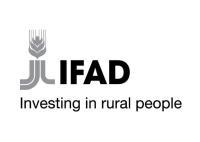The project will increase adoption of efficient aquaculture technologies in arid areas, improve engagement of women and youth in productive aquaculture and enhance collaboration between IFAD, WorldFish and regional/national partners in the field of aquaculture; strengthen capacity of national aquaculture institutions in Egypt, Eritrea and Ethiopia and promote the adoption of such technologies by fish farming communities.
Improvement of rural livelihood and resilience of fish farmers in the three countries
Water scarcity - in terms of quantity and quality - remains the most critical challenge for aquaculture expansion. As a result, arid lands and other water-poor territories have been ignored as potential areas for aquaculture development. Yet about 43% of the African continent, supporting the livelihoods of nearly 485 million people, is considered as arid but have underground water sources (including brackish water aquifers), dams, seasonal ponds and pools from abandoned open-cast mines that could be used for aquaculture. With increasing competition for water and arable land, aquaculture operations must turn to new frontiers including such arid and semi-arid lands. Furthermore, these areas have a great amount of solar radiation which can be used as a source of energy for operating both closed and open aquaculture systems as well as for preservation of post-harvest fish and fish products. Despite this potential, the fish supply (from both aquaculture & capture fishery) in these countries does not match the demand (Tilahun et al., 2016). Development of the aquaculture sector has been constrained by limited availability of quality fish feed and seed, temperature and salinity of the water, lack of technical know-how and limited public and private sector investment (Habte-Tsion, 2017). Exploiting the aquaculture potential in these areas therefore requires research and development of improved and efficient technologies that are adaptable to the water-deficient conditions.
Describe logic of project achieving impact
The project will achieve its goals through development and promotion of water-use efficient and cost- effective systems such as the Improved Pond Raceway System (IPRS), promotion of improved post-harvest practices, conducting fish consumption campaigns This grant will support adaptive research and development of appropriate technologies for climate-resilient aquaculture in arid areas and other water-deficient conditions, particularly targeting 5 countries in 2 IFAD Divisions; in ESA (Kenya, Botswana and Ethiopia) and NEN (Eritrea, Egypt). It will support capacity building of national aquaculture research institutions and extension agencies and promote the adoption of such technologies by fish farming communities. Knowledge materials will be produced and disseminated through this project.
